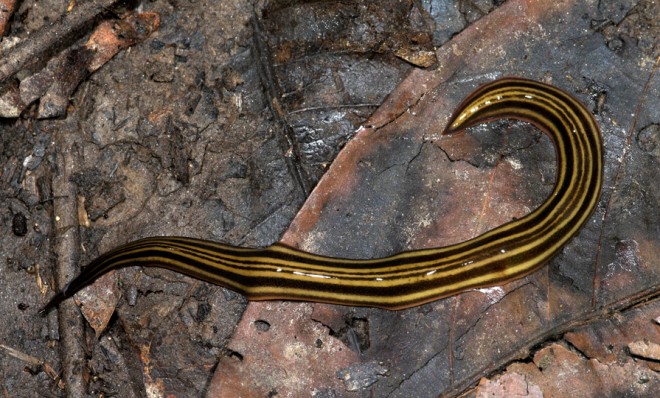The worm that regrows its head, and memories, when decapitated
Meet the planarian

A free daily email with the biggest news stories of the day – and the best features from TheWeek.com
You are now subscribed
Your newsletter sign-up was successful
As a rule of thumb, having your head lopped off Ned Stark-style is obviously not a good look if you would like to continue living. One of the more unique exceptions to this rule is the humble planarian, a tiny, freshwater flatworm with the rare ability to regrow its head once it has been decapitated.
The planarian's ability to regenerate its vitals is remarkable, even by worm standards. As Elizabeth Preston at Inkfish notes, "The whole body can regrow, head to eyespots to tail, from even a tiny fragment of the original animal."
Its enviable healing powers include growing a new brain. As far back as the '60s, researchers have been curious about whether the worm could resurrect lost memories, but the original research was riddled with inconsistencies.
The Week
Escape your echo chamber. Get the facts behind the news, plus analysis from multiple perspectives.

Sign up for The Week's Free Newsletters
From our morning news briefing to a weekly Good News Newsletter, get the best of The Week delivered directly to your inbox.
From our morning news briefing to a weekly Good News Newsletter, get the best of The Week delivered directly to your inbox.
Enter a new study from Tufts University. For this experiment, a team of biologists trained the tiny worms (just 1 cm each) to find food hidden in the center of a rough-bottomed petri dish. The meal was lit up by a bright beam of light. Since planarians prefer to skulk around the outskirts where it's dark, this helped ensure that the worms were learning new behaviors.
The team also employed video-tracking technology to confirm what they were seeing with their own eyes: Planarians acquainted with the petri dish's rough terrain found the brightly lit food quicker than their peers. What's more, they were able to do so easily when they were removed from the dish and returned two weeks later for a new test. (Which is about the length of time it takes for them to regrow their heads.)
Then they were decapitated.
After 14 days of literally losing their minds, the worms, new brains and all, were placed back in the rough-bottomed petri dish with the bright light shining down on their lunch.
A free daily email with the biggest news stories of the day – and the best features from TheWeek.com
Though they weren't able to wriggle their way to the food right away, they were able to easily find food again after one quick training session — much faster than their non-trained peers, in fact.
"[D]ecapitated planaria exhibit evidence of memory retrieval in a savings paradigm after regenerating a new head," write the study's authors. As for where those memories were stored or how the worms were able to quickly relearn old behaviors — it's tough to say.
According to The Verge, some researchers think that the worms' memories may be stored elsewhere in their body, or alternatively that "the worms' original brain may have modified their nervous systems, and their nervous systems may have then altered how the new brains formed during regrowth."
A fallen lord of Westeros should be so lucky.
-
 Political cartoons for February 15
Political cartoons for February 15Cartoons Sunday's political cartoons include political ventriloquism, Europe in the middle, and more
-
 The broken water companies failing England and Wales
The broken water companies failing England and WalesExplainer With rising bills, deteriorating river health and a lack of investment, regulators face an uphill battle to stabilise the industry
-
 A thrilling foodie city in northern Japan
A thrilling foodie city in northern JapanThe Week Recommends The food scene here is ‘unspoilt’ and ‘fun’